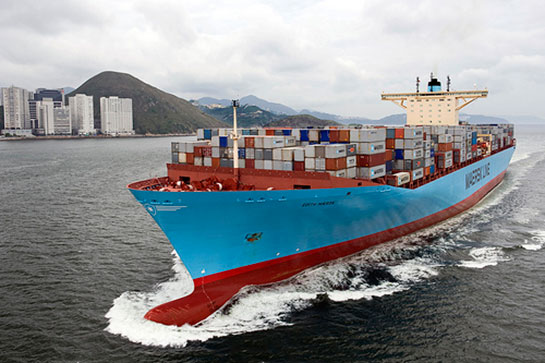The Chinese Ministry of Commerce (MOFCOM) announced on June 17 that it has not approved the P3 network vessel sharing agreement proposed by Denmark’s Maersk Line, the Swiss line Mediterranean Shipping Co. S.A. (MSC), and France’s CMA CGM, the world’s top three ocean carriers. The decision followed a review under China’s merger control rules.
Subsequently, the P3 partners have agreed to stop preparatory work on the project, and the network as initially planned will not come into existence. Had it gone forward, the alliance would have initially involved 252 vessels with capacity of 2.6 million TEUs (20-foot equivalent units). That would have amounted to 41% of trans-Atlantic space and 24% of trans-Pacific capacity.

“We have worked hard to address the Chinese questions and concerns. So, of course, it is a disappointment,” said Vincent Clerc, chief trade and marketing officer at Maersk Line. “P3 would have provided us with a more efficient network, and our customers with a better product. We are committed to continuing to be cost competitive and offer reliable services.”
“The decision does come as a surprise to us, as the partners have worked hard to address all the regulators’ concerns, said Maersk Group CEO Nils S. Andersen. “The P3 alliance would have enabled us to make further reductions in cost and CO2 emissions, and not least improve services to customers with a more efficient vessel network. Nevertheless, I’m quite confident Maersk Line will accomplish those improvements anyway.”
The lack of implementation of the P3 Network is not expected to have any material impact on the Maersk Group’s expected result for 2014.
About P3
On 18, 2013, Maersk Line, MSC and CMA CGM announced their intention to establish a long-term operational vessel sharing agreement on the East–West trade routes, called the P3 Network. The overall aim was to make container liner shipping more efficient and improve service quality for the shippers due to more frequent and reliable services. The network was intended to be an operational, rather than a commercial, cooperation.
On March 24, 2014, the US Federal Maritime Commission (FMC) decided to allow the P3 Network agreement to become effective in the United States, and on June 3 the European Commission informed the P3 partners that it had decided not to open an antitrust investigation into the network and had closed its file.
P3 was scheduled to start operations in the autumn of 2014.





